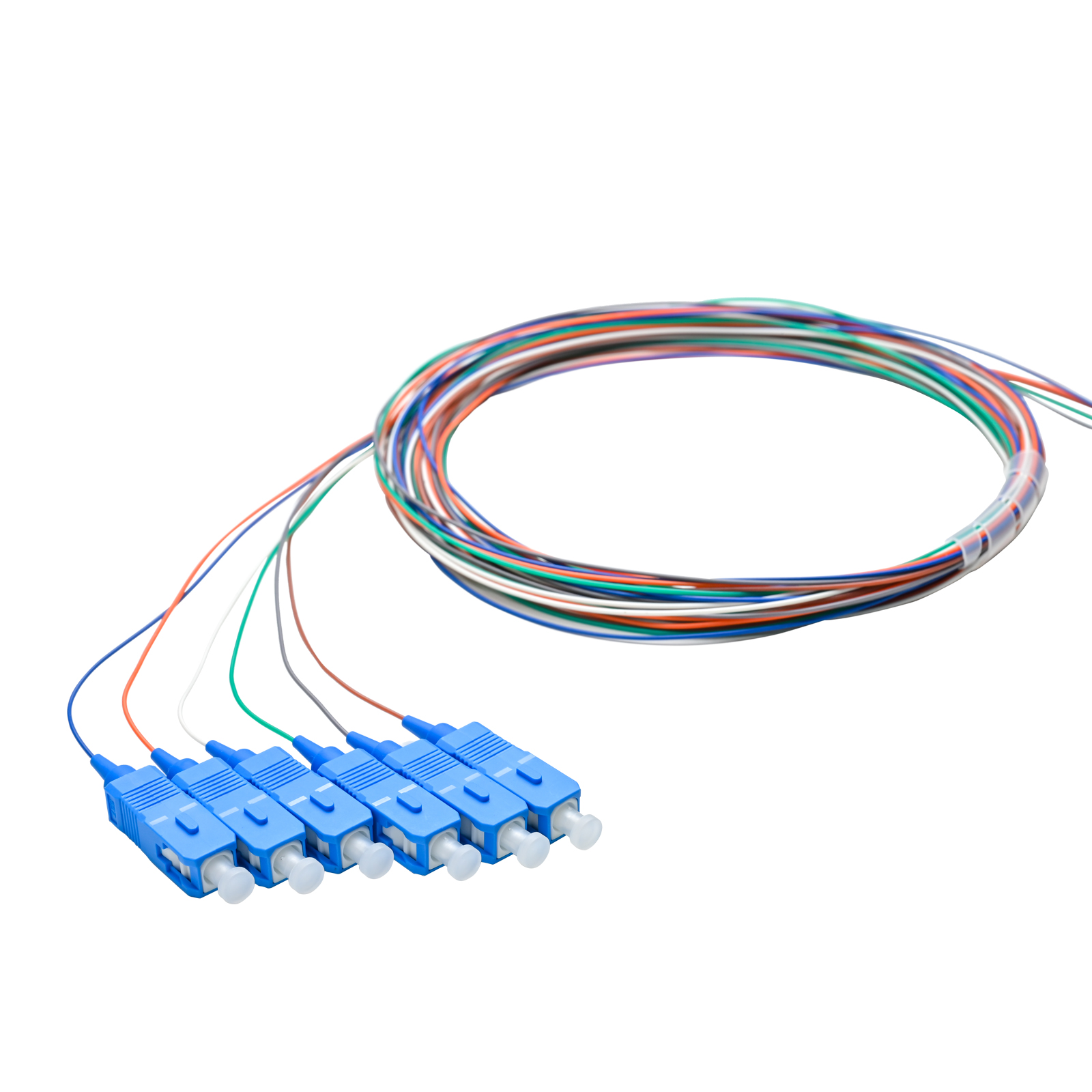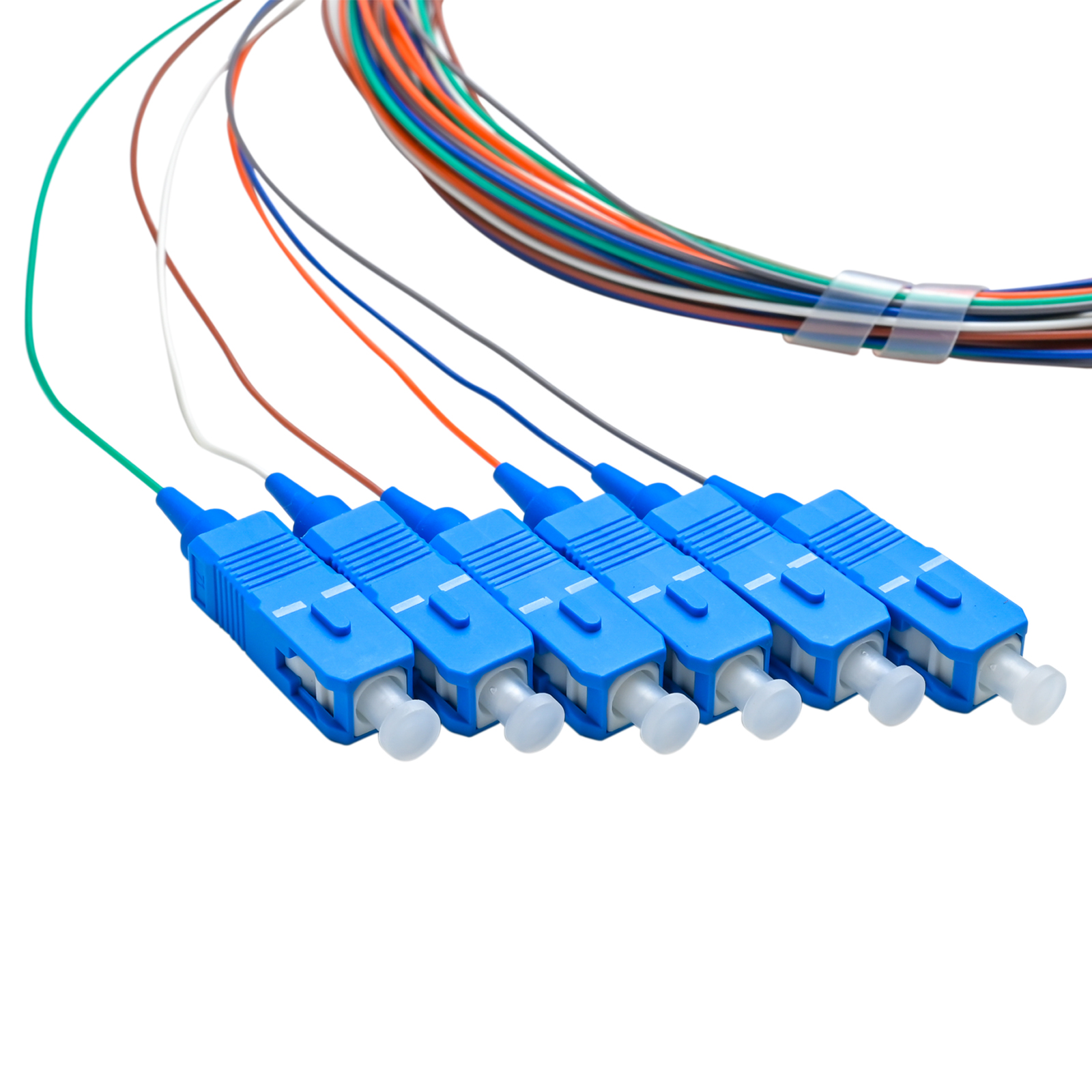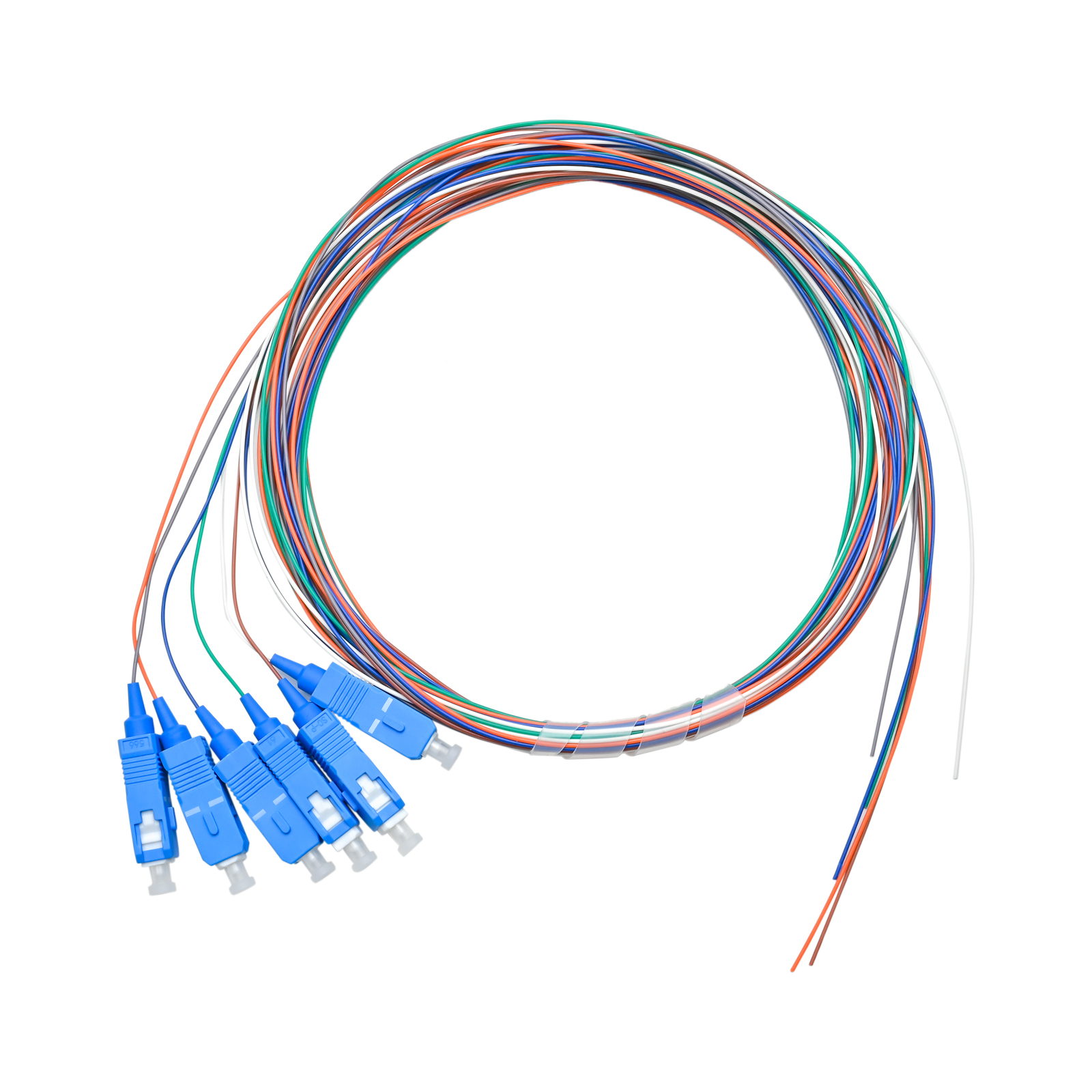Description
Fiber optic pigtail are utilized to terminate fiber optic cables via fusion or mechanical splicing. High-quality pigtail cables, coupled with correct fusion splicing practices offer the best performance possible for fiber optic cable terminations. Fiber optic pigtails are usually found in fiber optic management equipment like ODF, fiber terminal box and distribution box.The SC is a snap-in connector which also features a 2.5mm ferrule much like the ST connector and is known for its excellent performance. The connector is simple, rugged, and low cost. Its simple push on/pull off operations makes it a popular choice.Single-mode fiber provides users with a greater transmission rate in addition to nearly 50 times longer distance as opposed to multi-mode fiber. However, single-mode fiber is more expensive than multi-mode fiber. Among all the differences between single-mode and multi-mode fibers, the most basic is the size difference in the fibers? core as well as the associated loss or attenuation and fiber bandwidth. G.657A1 is the NEW de facto standard for bend-insensitive NDSF SMF for premises cabling, thanks to optimized performance and cost balance. Minimum bending radii can be optimized, but this sacrifices fiber attenuation and cost. ITU-T G.657A1 and A2 are fully compliant with G.652D, and can offer enhanced, low-loss fiber. Bend-insensitive NDSF is defined in ITU-T G.657, with different minimum bending radii characteristics: G.657A1 (10 ?m).
When weighing your options between on-premises and access network fiber replacement or new installation, we highly recommend replacing legacy OS1 with a new bend-insensitive OS2 (ITU-T G.657A1) SMF cabling system to support longer reach with enhanced link performance.UPC connectors are polished with no angle. UPC connectors are not exactly flat, however; they have a slight curvature for better core alignment. Another more obvious difference is color. UPC connectors are blue while APC connectors are green.Tight buffer
Tight-buffered construction uses 900?m buffered fibers. The core is protected by two-layer coating. The first is plastic and the second is waterproof acrylate. The core of the cable is never at risk of exposure, unlike the loose-buffered cable which can escape its confines. Fibers are surrounded by dielectric strength members (FRP) and are protected by a rugged polyurethane outer jacket and provides superior environmental and mechanical protection. The fiber count for tight-buffered fiber cable varies from 1 to 144 fibers, but generally cables with 2, 6, 12, 24 fibers are most commonly used. Larger fiber counts such as 48 fibers, 96 fibers and 144 fibers are also available for specific applications.





